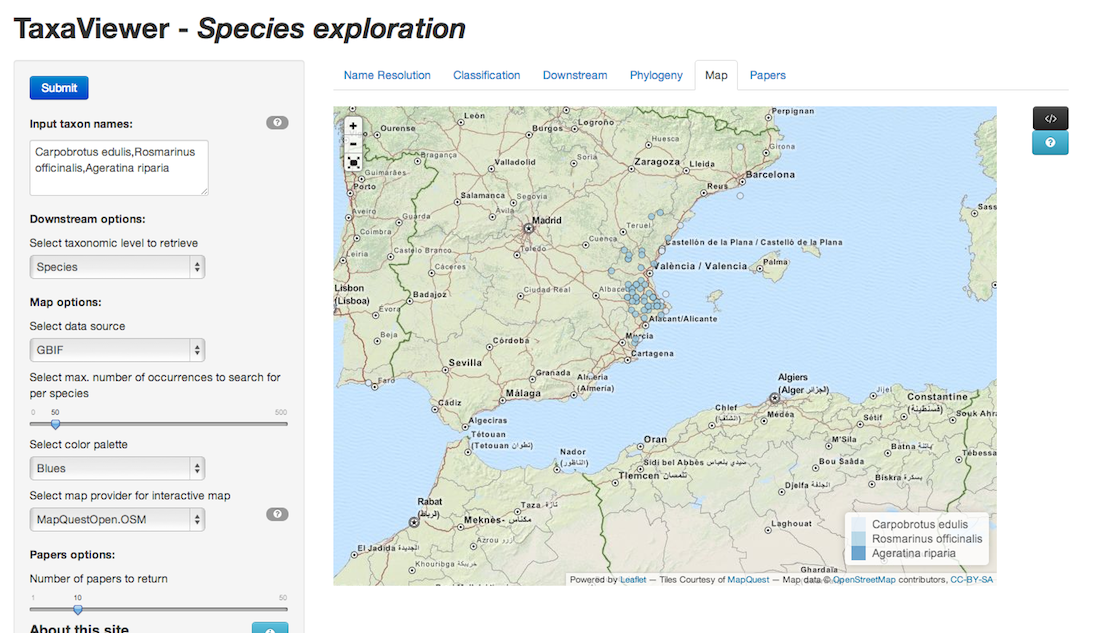Imagine you are a fish ecologist who compiled a list of fish species for your country. 🐟 Your list could be useful to others, so you publish it as a supplementary file to an article or in a research repository. That is fantastic, but it might be difficult for others to discover your list or combine it with other lists of species.
Messaggi di Rogue Scholar

rgbif was seven years old yesterday! What is rgbif? rgbif gives you access to data from the Global Biodiversity Information Facility (GBIF) via their API. A samping of use cases covered in rgbif: Search for datasets Get metrics on usage of datasets Get metadata about organizations providing data to GBIF Search taxonomic names Get quick taxonomic name suggestions Search occurrences by taxonomic name/country/collector/etc.
We have previously written about creating interactive maps on the web from R, with the interactive maps on Github. See here, here, here, and here. A different approach is to use CartoDB, a freemium service with sql interface to your data tables that provides a map to visualize data in those tables.
Previously on this blog we have discussed making geojson maps and uploading to Github for interactive visualization with USGS BISON data, and with GBIF data, and on my own personal blog. This is done using a file format called geojson , a file format based on JSON (JavaScript Object Notation) in which you can specify geographic data along with any other metadata.

R has a reputation of not playing nice on the web. At rOpenSci, we write R pacakages to bring data from around the web into R on your local machine - so we mostly don’t do any dev for the web. However, the United States Geological Survey (USGS) recenty held an app competition - it was a good opportunity to play with R on the web. We won best overall app as described in an earlier post on this blog.
Real use cases from people using our software are awesome. They are important for many reasons: 1) They make the code more useable because we may change code to make the interace and output easier to understand; 2) They may highlight bugs in our code;